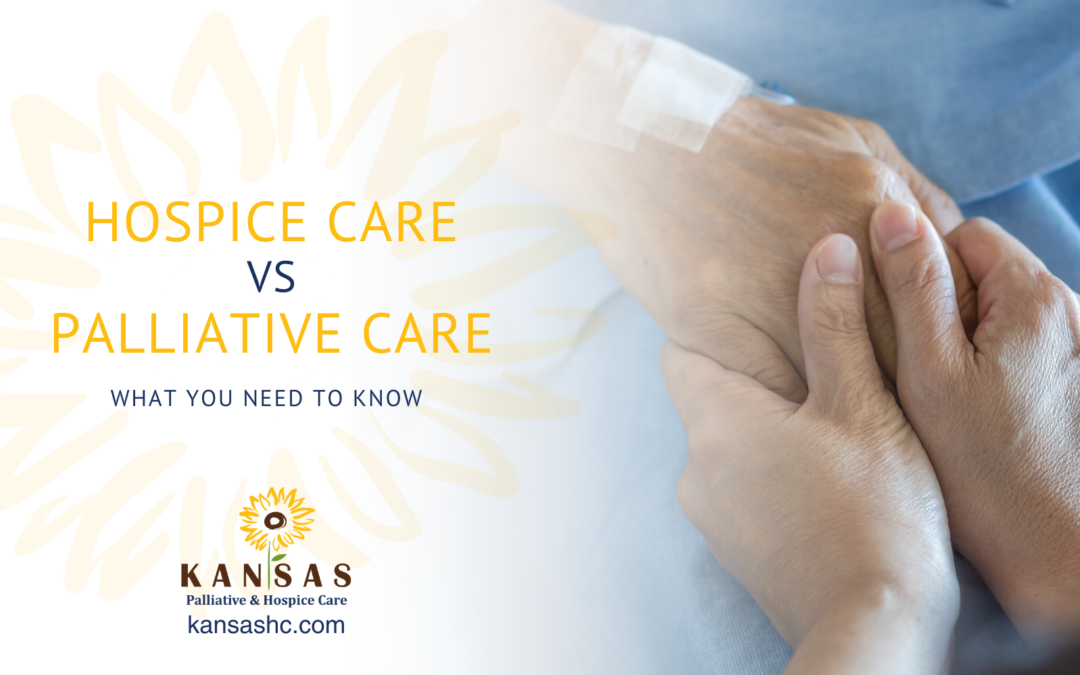When facing serious illness or end-of-life decisions, it’s natural for individuals and their families to have concerns and questions about the available options for care. The terms “hospice care” and “palliative care” are often used interchangeably, but they are distinct approaches designed to address different needs. We are going to delve into the differences between hospice and palliative care, providing you with the knowledge and understanding you need to make informed decisions.
Hospice Care: Enhancing Quality of Life During Terminal Illness
Hospice care revolves around providing specialized support and comfort to individuals who have been diagnosed with a terminal illness and are no longer seeking curative treatment. The main goal of hospice care is to enhance the quality of life for both the patient and their loved ones during the final stages of life.
Hospice care focuses on alleviating pain, managing symptoms, and providing emotional and spiritual support. Hospice care can be provided in various settings, including the individual’s home, a nursing facility, or a dedicated hospice center.
At its core, hospice care embraces a multidisciplinary approach involving a team of healthcare professionals, including doctors, nurses, social workers, counselors, and volunteers, who work together to address the physical, emotional, and spiritual needs of the patient and their family. This holistic approach ensures comprehensive care and support throughout the end-of-life journey.
Palliative Care: Comprehensive Support Across the Illness Continuum
Palliative care, on the other hand, is not limited to individuals with a terminal illness and can be provided at any stage of a serious illness. It aims to provide comprehensive, holistic support to individuals with complex medical conditions, focusing on symptom management and improving overall quality of life.
Palliative care begins at the time of diagnosis and can continue alongside curative treatment. It addresses physical, emotional, social, and spiritual aspects of care, helping patients effectively manage their symptoms and cope with the challenges of their illness.
Similar to hospice care, palliative care teams consist of various healthcare professionals working collaboratively to develop personalized care plans for patients. These plans are tailored to address specific symptoms and provide ongoing support to the patient and their family throughout the illness.
Key Differences
While hospice and palliative care share similar objectives, understanding their differences is crucial for making informed decisions. Here are the key distinctions between the two:
- Timing of Care: Hospice care is typically initiated when curative treatment options are no longer viable and a prognosis of six months or less is given. Palliative care, however, can be provided at any stage of the illness, regardless of the prognosis.
- Treatment Goals: Hospice care focuses primarily on comfort and quality of life for individuals nearing the end of life, whereas palliative care aims to enhance quality of life while simultaneously treating and managing the underlying illness.
- Scope of Care: While hospice care provides a comprehensive range of services that address physical, emotional, and spiritual needs at the end of life, palliative care offers similar support throughout the illness continuum, including curative treatments and disease management.
Understanding the distinctions between hospice and palliative care is essential when making decisions regarding the care of a loved one facing a serious illness. Both approaches offer comprehensive support and aim to enhance quality of life, but their timing, goals, and scope differ. You can develop a care plan that aligns with your loved one’s needs and wishes by engaging in open and honest conversations with healthcare professionals.
Remember, you are not alone in this journey. Hospice and palliative care professionals are ready to provide guidance, support, and compassion as you navigate this challenging time, ensuring you and your loved ones receive the care and comfort you deserve.
Need help? Contact us at (913) 353-6525.


